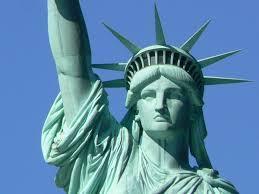
A nationalist will say that "it can't happen here," which is the first step toward disaster. A patriot says that it could happen here, but that we will stop it.
― Timothy Snyder, On Tyranny
Freedom is not just an absence of evil. Freedom is a presence of good. It is the value of values, the condition in which we choose and combine the good things, bringing them into the world, leaving our own unique trace. It is positive.
-Timothy Snyder, On Freedom
I took Timothy Snyder's advice and put my body in an unfamiliar place with unfamiliar people, the Justice Court in the small village where I live in Upstate New York. Full disclosure, I went with a friend who was feeling trepidatious after receiving a speeding ticket, and asked for support. She had never been to court before and had asked if I'd find out more about this particular court. Then she asked if I'd call my Sheriff "friend" to put in a good word, or if I knew the judge. I had interviewed the Sheriff for the local paper, but he is not my friend; there's a firewall between my professional and personal life. But my friend was scared, and not thinking clearly. I told her the request was inappropriate, and she understood.
We decided we'd both wear suits and tame our wild hairstyles, out of respect for the court and the formality of its proceedings. Our politics dictate this posture: humility, no one above the law. Thus do we all stand when the judge enters the courtroom; he is the emblem of our 240-year-old imperfect judicial system.
There are almost 1,200 Justice Courts in New York State, and thousands more in small towns across the country. They deal with small-town matters: evictions, family troubles, small claims, traffic violations, and are considered the courts "closest to the people," according to a New York State brochure I just read. But for all its modesty, the rituals of a Justice Court are impressive, even awe-inspiring. On the day my friend was scheduled to appear, there was a long line to pass through a rigorous security check. The usual impulse to chat to a neighbor had dissipated, the hallway utterly silent. Once inside the courtroom, we were directed to hard wooden pews, and settled in to what turned out to be a long night. The movement of the police officers in their bulky bullet-proof vests and pistols, the lawyers in their black and gray suits, and the clerks conducting the well-choreographed proceedings were mesmerizing in their apparent harmony and efficiency. The judge seemed far away, snuggled behind his elevated, portentous desk, speaking privately—no microphone—and sotto voce to everyone.
Then it was my friend's turn to approach the bench. Time had run out and her case was postponed until the following week, which was deflating and also stressful. There was nothing to do but go out for a hearty meal and try to relax.
I couldn't stop thinking about that courtroom all week, how quiet it was, how well organized. Everyone knew their role and their place, everyone was polite, and everyone appearing in front of the judge was—not surprisingly—attentive . I wondered if Trump felt anything similar in the courtrooms he has been in of late: fear, for example, or wonder. Is he totally oblivious to the rigors and purpose of our judicial system? In the best of times, in the worst of times, this is a system that works, that can be made to work if we continue to attend to its flaws and correct them.
Most local justices are elected officials. If we don't approve of what they do, we are free to take our objections to the ballot box. As for the political corruption of SCOTUS, that's a more complicated challenge, one of many we'll be facing in the days, months and years beyond November 5th.
This post is dedicated to all the young American citizens, and new American citizens, who will be voting for the first time in November.








